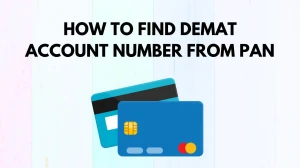
What is Debt Consolidation? How Can I Consolidate My Debt?
Debt consolidation is a financial strategy to simplify debt management and potentially secure better terms, reducing interest rates and monthly payments for more manageable and cost-effective debt repayment.
by Kowsalya
Updated Dec 07, 2023
On This Page
What is Debt Consolidation?
Debt consolidation is a financial strategy that involves taking out a single loan or credit card to pay off multiple existing debts, such as credit card balances, personal loans, or other financial obligations. The primary aim of debt consolidation is to streamline your debt management and potentially secure more favorable terms, such as a lower interest rate and reduced monthly payments.
This process can be accomplished through various means, including obtaining a personal loan, using a balance-transfer credit card, or tapping into your home equity if applicable.
By consolidating your debts, you not only simplify your financial life by having fewer bills and due dates to track but also have the potential to save money by paying less in interest over time, making it a practical solution for individuals seeking more manageable and cost-effective debt repayment options.
How Can I Consolidate My Debt?
Consolidating debt can be a strategic financial move to simplify your repayment process and potentially reduce the overall cost of your debts. There are several methods to consolidate debt, each with its advantages and considerations:
Get Prequalified
- Explore potential loan offers from various lenders without impacting your credit score.
- Compare interest rates, loan terms, and fees to find the best option.
Compare Loan Offers
- Evaluate at least three loan offers, considering interest rates, fees, and overall value.
- Ensure that a lower interest rate aligns with your financial goals.
Gather Documents
- Collect necessary documents, such as pay stubs, bank statements, or tax returns.
- Upload documentation to the lender's portal when ready to apply.
Submit a Formal Application
- Complete the loan application with accurate information.
- Be prepared to verify your identity, employment, income, and housing status.
Pay Off Balances
- Upon approval and receiving funds, initiate debt consolidation by paying off existing balances.
- Notify lenders or use the lender's assistance if applicable.
What Credit Score Do You Need for a Debt Consolidation Loan?
The credit score needed for a debt consolidation loan typically varies among lenders. In general, traditional lenders may require a higher credit score, such as 660 or more, to qualify for a debt consolidation loan with favorable terms.
However, there are online lenders and credit unions that may be more lenient and work with individuals who have lower credit scores, even as low as 580 or lower. Keep in mind that having a higher credit score will likely help you secure a debt consolidation loan with better interest rates and terms, making it more cost-effective. It's advisable to shop around and compare offers from different lenders to find one that suits your credit profile and financial needs.
How Debt Consolidation Works?
Debt consolidation works by combining multiple existing debts into a single, larger loan or credit card, making it easier to manage and potentially more cost-effective.
This process typically involves taking out a new loan or credit card with more favorable terms, such as a lower interest rate and smaller monthly payments. With the new financial instrument, you pay off your smaller, high-interest debts, effectively simplifying your financial life.
Common methods of debt consolidation include obtaining a personal loan, using a home equity loan if you have home equity available, or transferring balances to a credit card with a high enough credit limit. By consolidating your debts, you aim to pay off your financial obligations more efficiently and may even reduce the total interest paid over time.
However, it's essential to be cautious and consider the potential downsides of debt consolidation. Taking out a new loan can lead to a temporary decrease in your credit score, which could affect your eligibility for other forms of credit.
Related >> Best Debt Consolidation Loans
What Are the Types of Debt Consolidation Loans?
Debt consolidation loans come in various types, each catering to different financial situations and preferences. Here are some common types of debt consolidation loans:
Personal Loans
- Unsecured loans from banks or credit unions that provide a lump sum payment.
- Lower interest rates compared to credit cards, fixed interest rates, and a set repayment period.
- Approval and rates depend on creditworthiness, and an unsecured nature may result in higher interest rates.
Balance Transfer Credit Cards
- Credit cards that allow you to transfer balances from existing high-interest cards to a new card with a lower or 0% introductory APR.
- Potential for a 0% APR introductory period, lower interest rates, and simplified payments.
- Introductory periods are temporary, balance transfer fees may apply, and regular APR may be high after the intro period.
Home Equity Loans
- Secured loans that use the borrower's home equity as collateral.
- Lower interest rates than credit cards, potential tax benefits, and fixed interest rates.
- Risk of losing home if unable to repay, closing costs may apply, and eligibility depends on home equity.
Home Equity Line of Credit (HELOC)
- A revolving line of credit using home equity as collateral.
- Flexibility to borrow as needed, lower interest rates, and potential tax benefits.
- Variable interest rates, risk of home loss for non-repayment, and closing costs may apply.
Student Loan Consolidation
- A federal program allows the consolidation of multiple federal student loans into a single loan.
- Simplified payments, potentially lower monthly payments, and fixed interest rates.
- Loss of certain federal loan benefits, extended repayment period, and interest rate is the weighted average of previous loans.
Debt Consolidation Companies
- Companies that assist in consolidating debts; may offer counseling, negotiation, and debt management plans.
- Professional assistance in managing and negotiating debts.
- Fees may apply, potential impact on credit scores, and the legitimacy of companies varies.
Related >> Best Debt Consolidation Loans for Bad Credit
What Are the Pros and Cons of Debt Consolidation Loans?
Pros of Debt Consolidation Loans
- Debt consolidation simplifies your financial life by combining multiple debts into a single loan, reducing the number of payments and interest rates to manage. This can help you avoid late payments and improve your credit score.
- If your debt consolidation loan has a lower interest rate than your previous loans, you can make extra payments with the money saved each month, helping you pay off the debt faster.
- Debt consolidation may lead to a lower overall interest rate, especially if your credit score has improved since obtaining your original loans. Reducing interest rates can save you money in the long run.
- Consolidating debt often extends the repayment period and reduces the monthly payment, which can be helpful for budgeting. While this decreases monthly financial stress, it might lead to higher total interest payments over the loan's life.
- Paying off high-interest revolving credit lines, such as credit cards, can lower your credit utilization rate, potentially boosting your credit score. Consistent, on-time payments also contribute to credit score improvement.
Cons of Debt Consolidation Loans
- Debt consolidation loans can involve additional fees such as origination fees, balance transfer fees, closing costs, and annual fees. It's essential to understand the true cost of the loan before proceeding.
- If you don't qualify for the lowest interest rates, you might end up with a higher interest rate than your current loans, resulting in additional interest costs over time.
- Despite lowering your interest rate, a longer repayment term with debt consolidation means that you may pay more interest over the life of the loan. To mitigate this, budget for higher monthly payments.
- Missing payments on your consolidation loan can damage your credit score and incur added fees. Make sure to budget for the new payment, consider autopay, and communicate with your lender if you anticipate missing a payment.
- Debt consolidation simplifies payments but doesn't address the financial habits that led to the debts. Without improving your financial behavior, you may end up accumulating more debt.
- Clearing credit cards and other credit lines may create a false sense of financial security, leading to more spending. To avoid this, develop a budget and maintain spending discipline.
What is Debt Consolidation - FAQs
1. What is debt consolidation?
Debt consolidation is a financial strategy where multiple debts are combined into a single loan or credit card to simplify repayment and potentially secure more favorable terms, such as lower interest rates.
2. How can I consolidate my debt?
Debt consolidation can be achieved through various methods, including personal loans, balance transfer credit cards, home equity loans, and debt management plans.
3. Can debt consolidation hurt my credit?
Debt consolidation can have both positive and negative effects on credit scores.
4. What credit score do I need for a debt consolidation loan?
Securing a debt consolidation loan is possible with a credit score as low as 580, but a higher credit score, preferably 660 or above.
5. When is debt consolidation a smart move?
Debt consolidation is a smart move when your monthly debt payments are manageable, your credit is in good standing.




